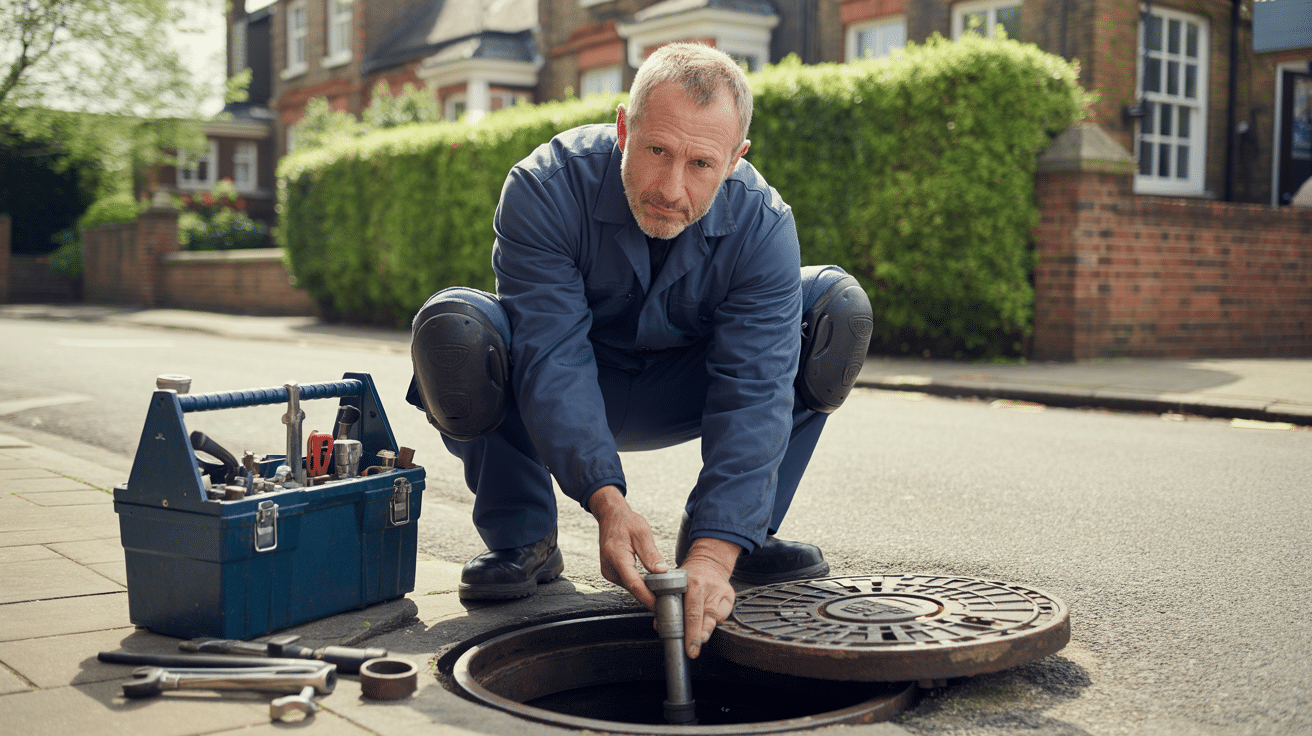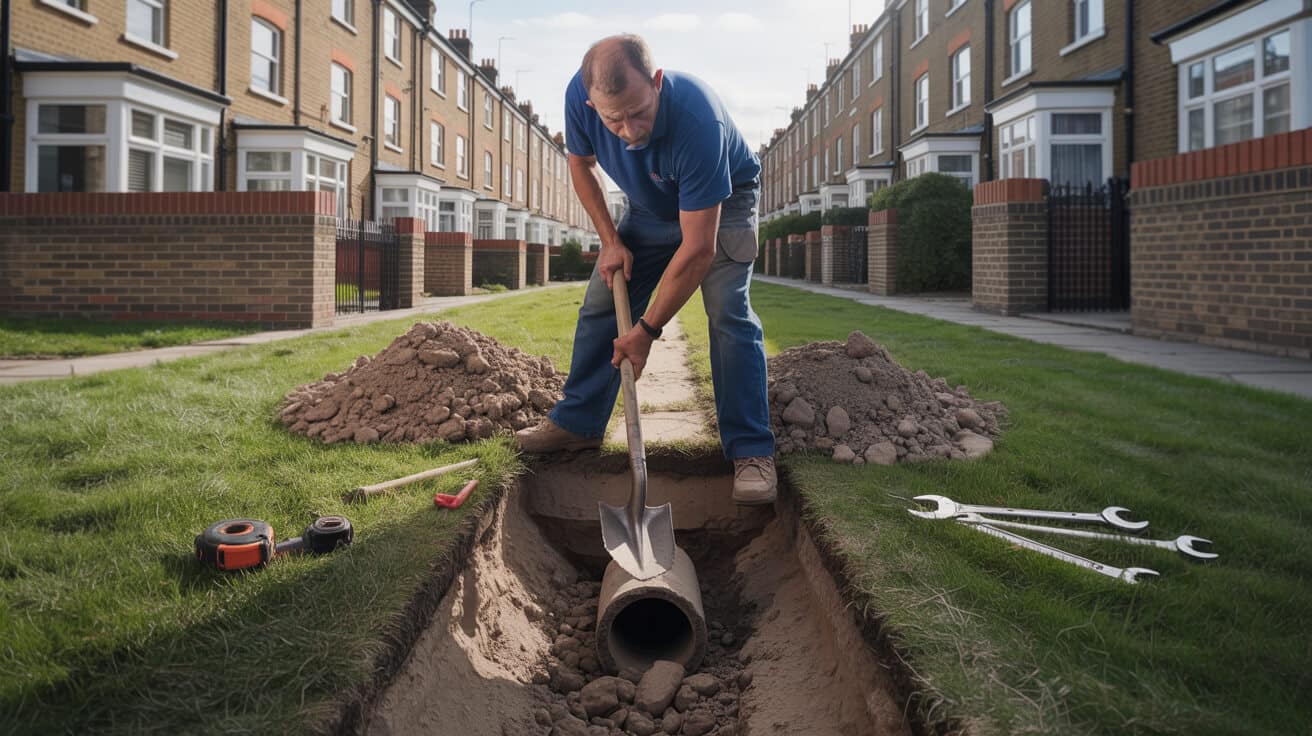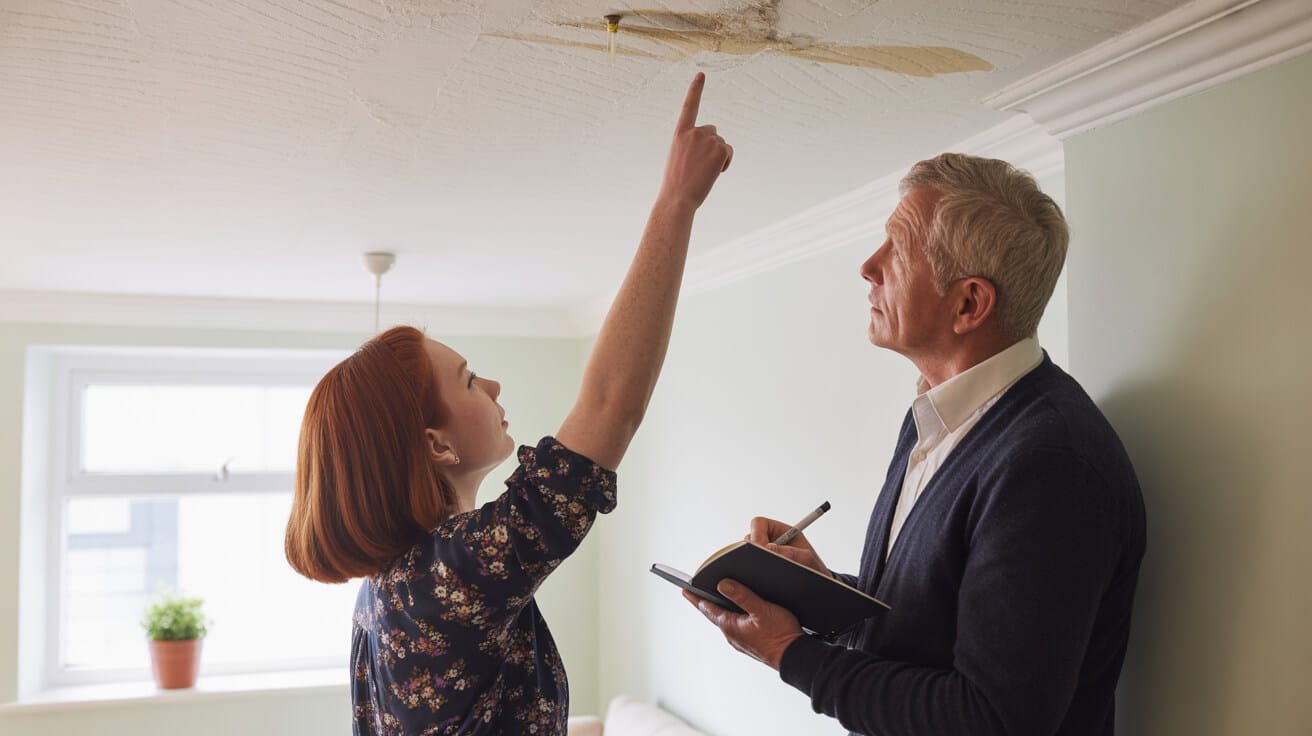 Who Handles Blocked Drains Landlord or Tenant
Who Handles Blocked Drains Landlord or Tenant
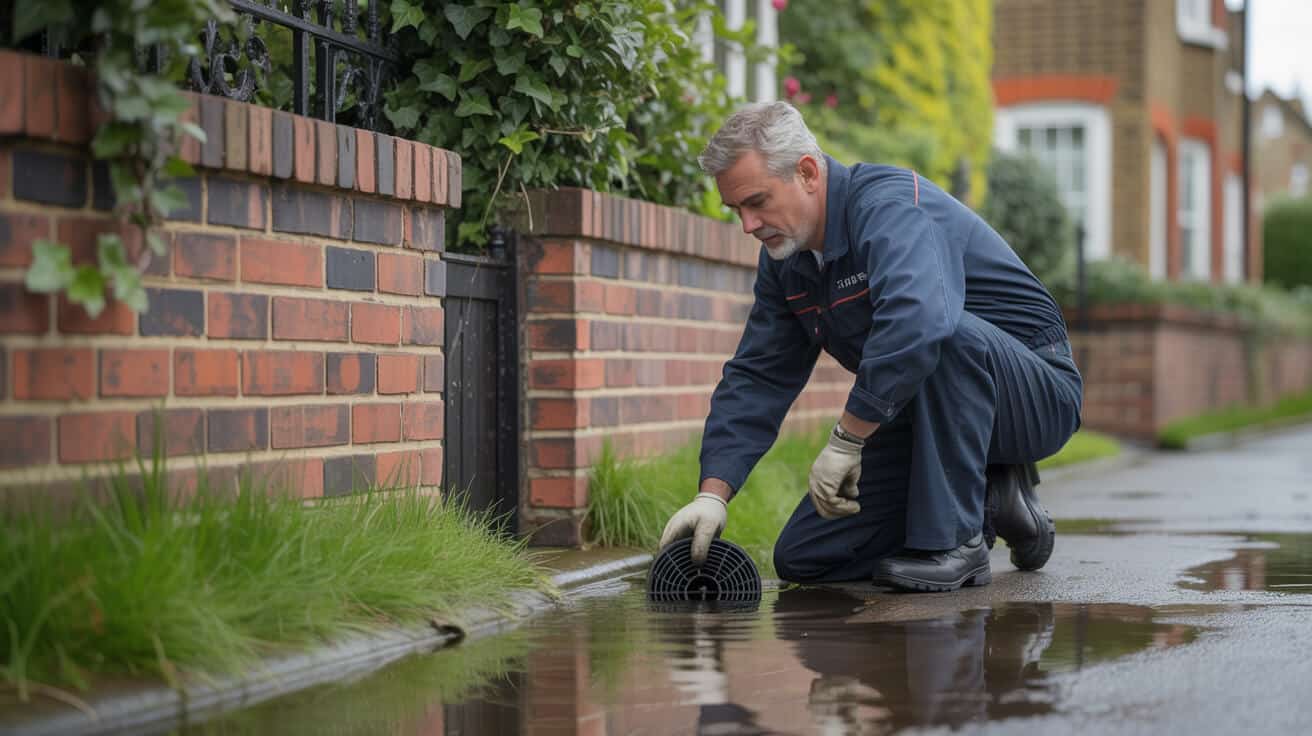
Who Actually Pays to Unblock Drains in a Rented Property—and Why Does It Get So Messy?
blocked drains don’t ask your schedule—or your legal preference. For homeowners, landlords, letting and managing agents, commercial property owners, and local authorities, a blocked toilet, slow kitchen sink or overflowing bathroom can send stress levels and costs sky-high. Arguments erupt, repair bills swirl, and deposits get stuck in limbo not because the fix is hard, but because nobody’s clear on who should pay, who’s really to blame, or what counts as fair evidence.
You can do everything right—yet one missed photo or a single vague plumber’s note turns a simple job into a drawn-out dispute.
The UK system is not designed to confuse, but the lines between “tenant-like manner,” landlord obligations, and water company jurisdiction are fuzzy enough that mistakes happen every week. Blockages get worse. Communication gets emotional. Costs spiral. And yet, it doesn’t have to be this way.
This guide uses UK housing law, field evidence from blocks all over the country, and Hector Gauge’s own playbook as a WRAS and WaterSafe specialist. We break down exactly who handles blocked drains, how to gather proof, and how both sides can avoid the classic deposit-blame standoff for good—while keeping your property (and your reputation) safe.
What Does the Law Actually Say—Is It the Landlord or the Tenant’s Job to Fix Blocked Drains?
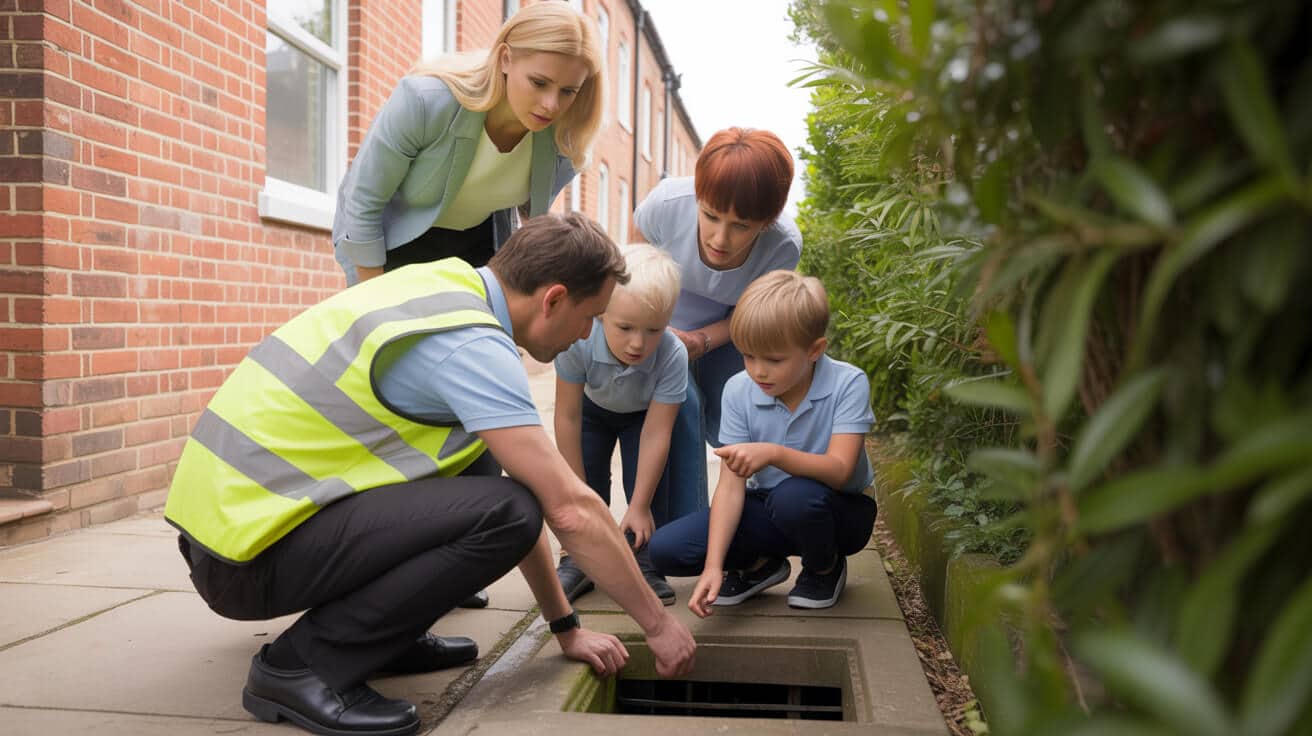
UK law splits responsibility based on the cause of the blockage, your tenancy contract, and—crucially—what a genuine plumbing report finds on the day. Section 11 of the Landlord and Tenant Act 1985 is clear on one thing: Landlords must maintain “drains, waste-water pipes, and structural plumbing”, making sure everything works and is safe to use. But. Tenants have to act “in a tenant-like manner”—which means reporting trouble early and not causing avoidable problems by pouring oil, wipes, or crazy stuff down the pipes.
Who pays, in the real world?
- Landlord: If root damage, collapsed or cracked pipes, subsidence, frost, or simple system age are to blame.
- Tenant: If it’s proven to be “misuse”—that means fats, wipes, toys, food waste, or deliberate neglect.
Here’s what always makes the difference: When a qualified, WRAS- or WaterSafe-approved plumber (not just anyone with a plunger) provides a written report with photos and a clear explanation of what blocked the drain, that document decides whose wallet gets lighter.
Why does this matter for you?
Because blocked drains are one of the top five reasons for deposit battles and landlord-tenant disputes in the UK—costing north of £180 per incident, particularly in cities (see outline statistics; check local rates for specifics).
Who Pays for the Most Common Causes of Blocked Drains? A Reality Snapshot
The legal line comes down to “what caused it?” Here’s a field-tested table breaking the ice:
| Cause of Blockage | Who Pays? | What to Do Next |
|---|---|---|
| Pipes collapsed / root ingress | Landlord | Notify, request rapid fix |
| Grease, wipes, food, toys | Tenant | Tenant arranges clearance |
| Old system / pipe wear | Landlord | Report, log all details |
| Obvious foreign object (in trap) | Tenant | Tenant covers plumber |
| Main/public/shared sewer | Water Company | Call regional supplier |
Floating manholes, shared pipes, or sudden blockages in social housing? That’s usually the water company’s (or council’s) world. Otherwise, the bill follows the cause. Don’t let anyone spin you in circles: misuse = tenant; pipework wear, structural failure or roots = landlord.
Blocked drains are a ‘hot potato’ cost — what matters is cause, evidence, and stepping in before delay turns a £90 repair into a £900 saga.
What Exactly Does a Landlord Have to Maintain When It Comes to Drains?
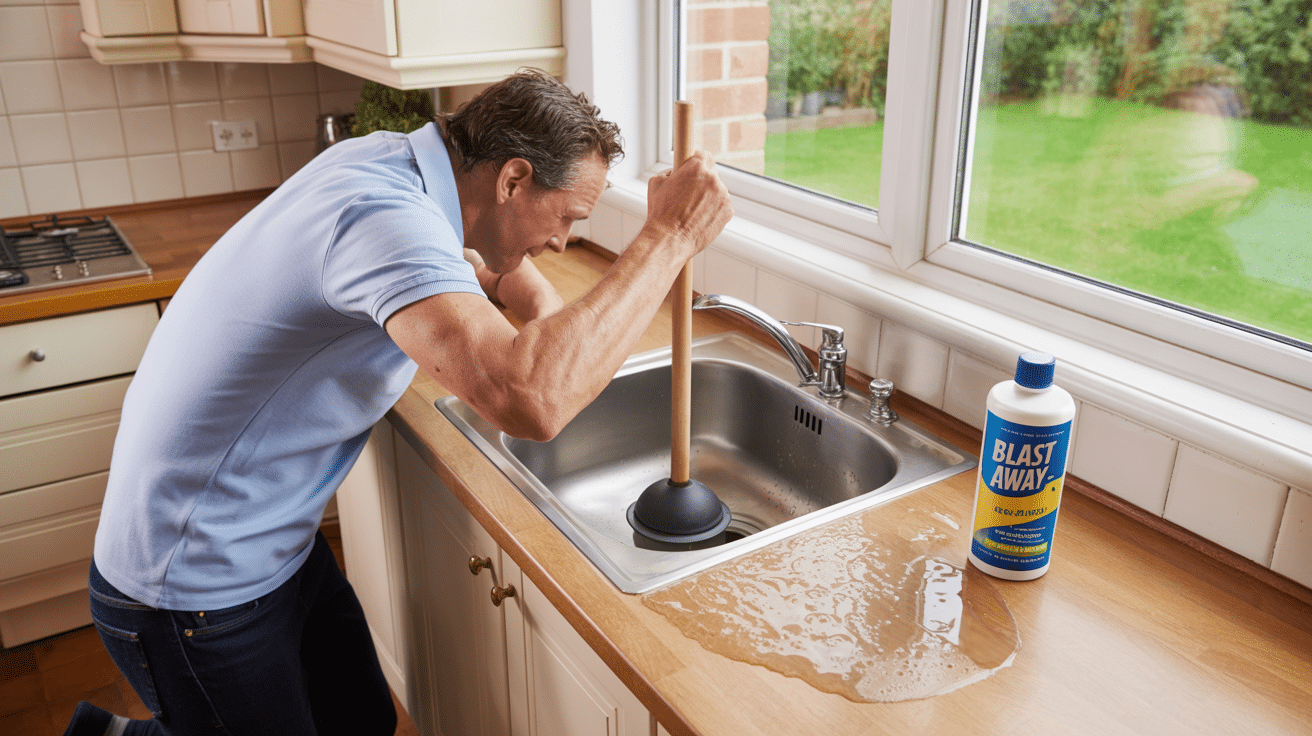
Landlords in the UK don’t just have a duty of care—they sit under a legal and insurance cloud if they ignore drainage and water issues. Section 11 of the Landlord and Tenant Act 1985 and every council repair charter say the same: keep all original and communal drains, soil pipes, and structural plumbing systems in working order. If the trouble stems from the system’s age, design, or forces outside a tenant’s control, it’s a landlord job.
Landlord Drainage Responsibilities: The Must-Fix List
Landlord covers:
- System failure: collapsed drains, root ingress, pipework rot or frost damage
- Defects or breaks in structural pipework outside the property or up to main chambers
- All original fixtures provided at move-in—WCs, baths, main soil stacks, and external drains
- Communal system blockages (for flats, commercial units, HMOs) up to the property boundary or shared chamber
What isn’t your landlord’s problem?
- Anything the plumber confirms is a direct result of tenant misuse (nappies in the trap, blockages packed with kitchen fat, tenant’s own DIY gone wrong)
- Anything worsened because tenants failed to report the problem while it could be fixed cheaply
Fail to fix your drains and a landlord risks claims of disrepair, rent withholding, or visits from environmental health. Don’t skip the paperwork: every repair, every complaint, and every fix should be logged with photos and a written plumber’s report.
A landlord’s legal protection—and path to a stress-free tenancy—starts with system maintenance and ends with documented evidence for every job done.
Still not clear?
If you’re in doubt, always hire a reputable plumber and get a formal report before paying a deposit deduction or refusing to pay a repair bill. It’s the best way to stay protected—on both sides.
What Drainage Issues Are the Tenant’s Responsibility According to UK Law?
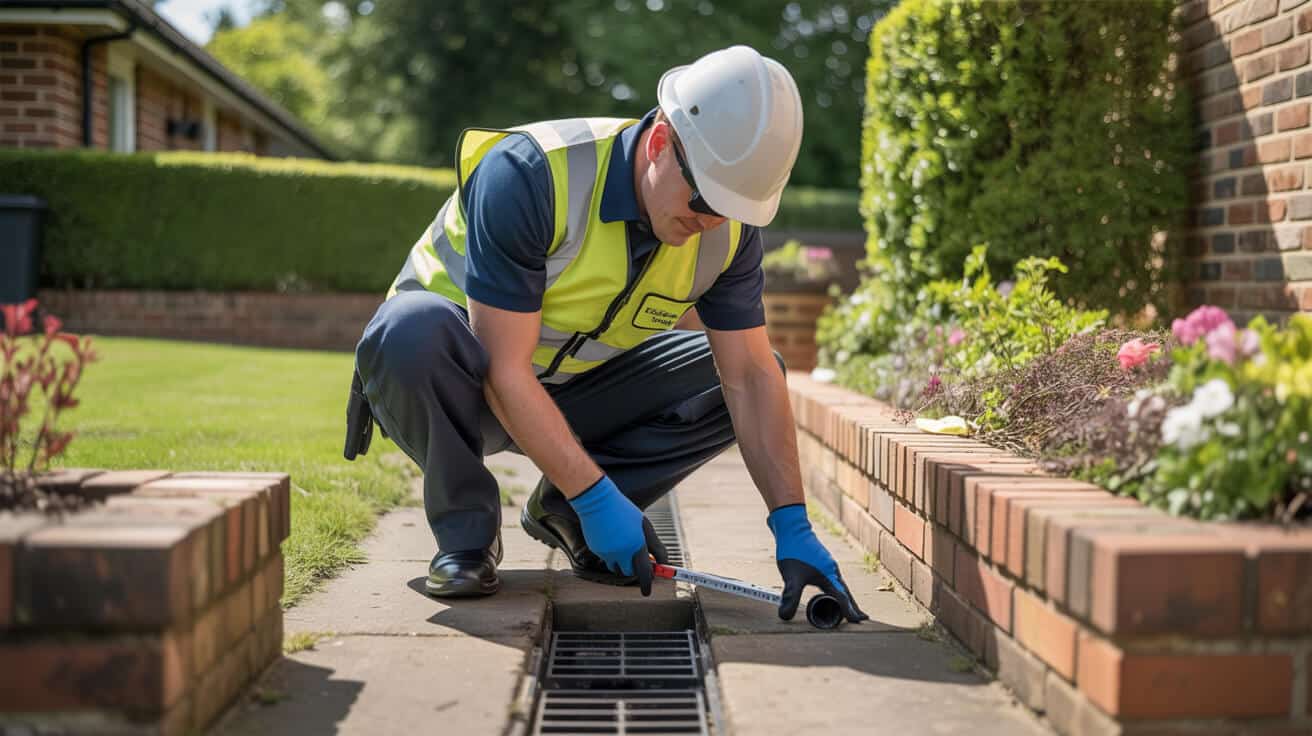
Tenants are expected to use the plumbing “properly” to avoid unnecessary cost and stress—for themselves and their landlord. The law (and every tenancy agreement worth its salt) expects you to do three things: don’t misuse the drains, report problems ASAP, and stay clear of risky DIY. The blame game starts when tenants wait too long, try to clear a massive blockage solo, or ignore usage rules.
Tenant Duties: Prevent, Report, Don’t DIY the Big Stuff
Landlords, agents, and tenants—know this cold:
- Any evidence of wipes, sanitary items, oil, fat, or kitchen debris in the pipe? — Tenant pays, sometimes via deposit.
- Unauthorised repairs, makeshift drain rods, or chemicals that backfire can shift liability straight to the tenant.
- Failing to log a slow drain or leak at the first signs can mean the tenant shares cost later, especially if it worsens.
Tenant smart moves:
- Log every slow drainage issue and report it digitally (text, email = best legal proof).
- Try a plunger or mild cleaner—do *not* combine chemicals or pour boiling water, as that can invalidate claims.
- Never attempt a major unblocking job — call your agent/landlord or a WRAS/WaterSafe-certified plumber.
Tenant deposit disputes almost always turn on the presence or absence of evidence—one good plumber’s note can swing it either way.
Be honest: did you flush wipes or push cooking fat down the sink? If in doubt, clean up your act and keep the log. Your future deposit may depend on it.
How Do Plumbers, Landlords, and Tenants Actually Decide Who’s at Fault—and Who Pays?
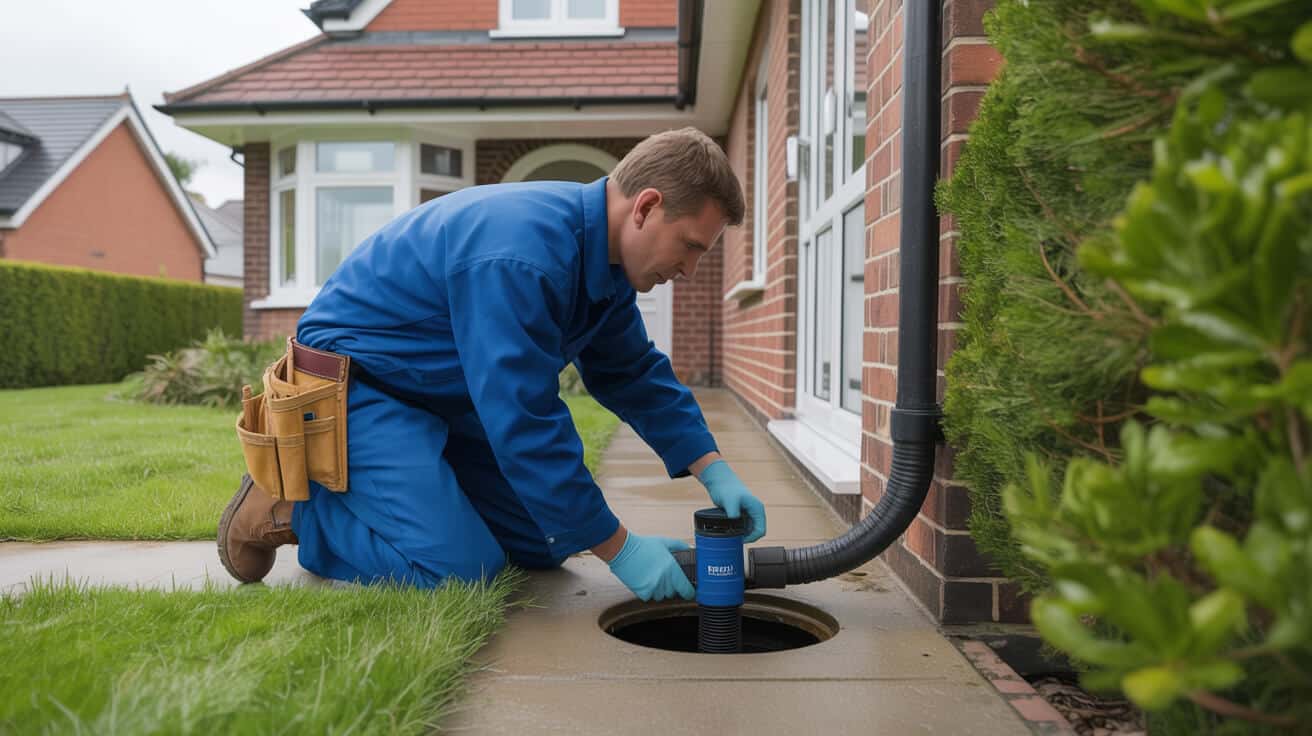
Most blocked drain rows aren’t about water—they’re about proof. Just because water floods your bathroom, that doesn’t tell you, or a deposit scheme, who’s really liable. The only method that works? Evidence, professional diagnosis, and transparent communication.
The 5-Step Process for Drain Dispute Resolution (Hector Gauge, Plumbers 4U)
- Inspection first: A qualified plumber assesses and documents everything—location, blockage type, possible cause. Their written report makes or breaks the case.
- Photos and video: Both parties should take clear “before/after” shots and, where possible, ask for photos from inside the pipes (particularly for repeat problems).
- CCTV for complicated jobs: Used when root ingress or structural issues are possible. Video evidence almost always settles the “who pays” row.
- Complete log trail: Save every message, photo, and plumber’s note, especially any recommendations or attempts at DIY by tenants.
- Professional invoices: Use only reputable, certified plumbers—without a WRAS or WaterSafe badge, your claim has much less legal weight.
Deposits and repair bills both live and die on the strength of real evidence, not finger-pointing. Robust reports stop arguments before they grow.
When a plumber can’t be certain, or if the report is ambiguous, the legal assumption usually defaults in favour of the system—landlords generally pay unless later misuse emerges as the clear cause. Don’t gamble—log everything, every time.
Who’s Responsible For Shared, Communal, or Public Drain Blockages?
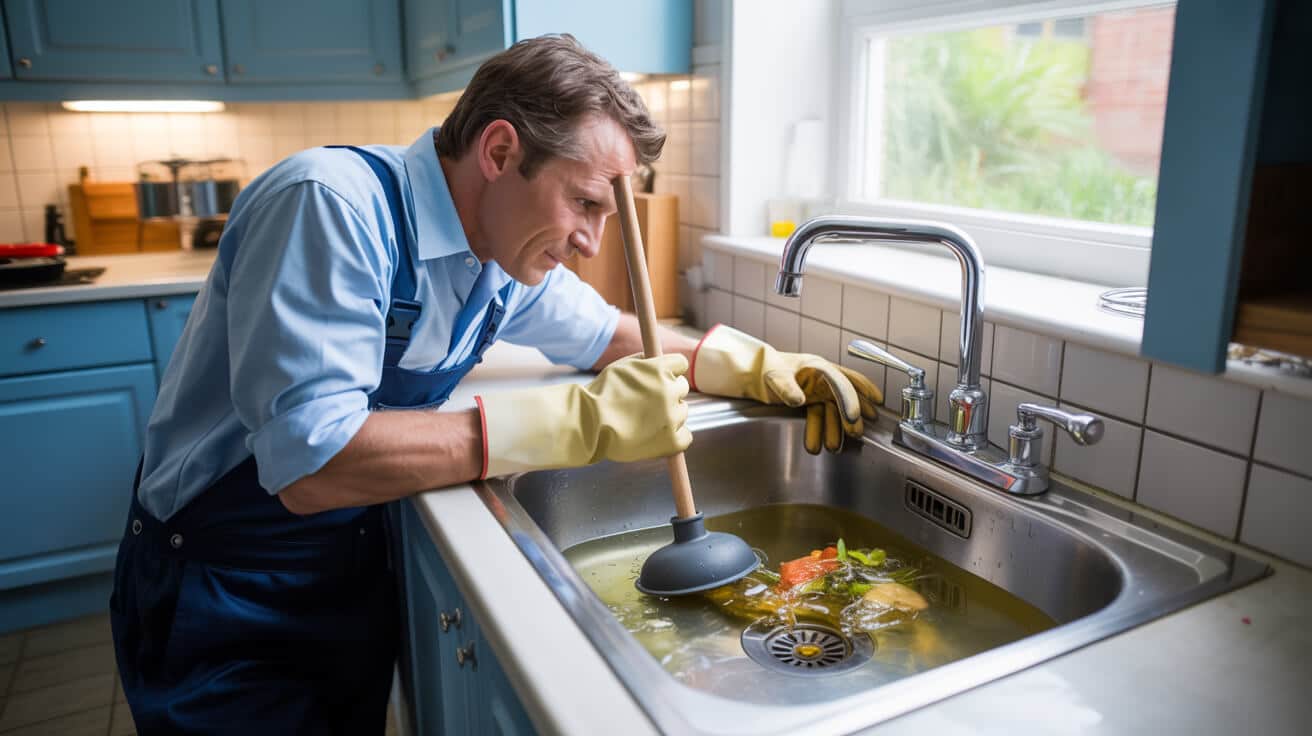
If your drain stops working and you’re not sure whether it’s even your problem, start with one question: Where is the pipe, and who else is affected?
UK water suppliers (like Thames, Severn Trent, United Utilities, etc.) are responsible for pipes that are:
- Beyond your private property boundary
- Serving multiple flats, terraced homes, or businesses—i.e., communal pipes or “shared laterals”
When Does the Water Company Handle a Blocked Drain?
- Drain beyond your fence/pavement line (often after the first access chamber) = Water company’s duty—neither landlord nor tenant pays.
- Communal pipes under car parks, shared yards, or run-offs for blocks of flats = Water company or council’s obligation.
- Unsure who pays for a blocked drain? Check for other homes affected or see if neighbours report the same trouble.
To avoid paying twice, never hand over money for a communal or public drain blockage without first checking with your water company (or agent), who can verify the site layout and jurisdiction.
A single phone call to the water company, armed with a plumber’s CCTV report, prevents months of wasted negotiation and surprise bills.
Don’t be rushed by urgency—clarify the boundary before you agree to any repair or charge.
What Happens If Landlord and Tenant Can’t Agree on Blocked Drain Bills?
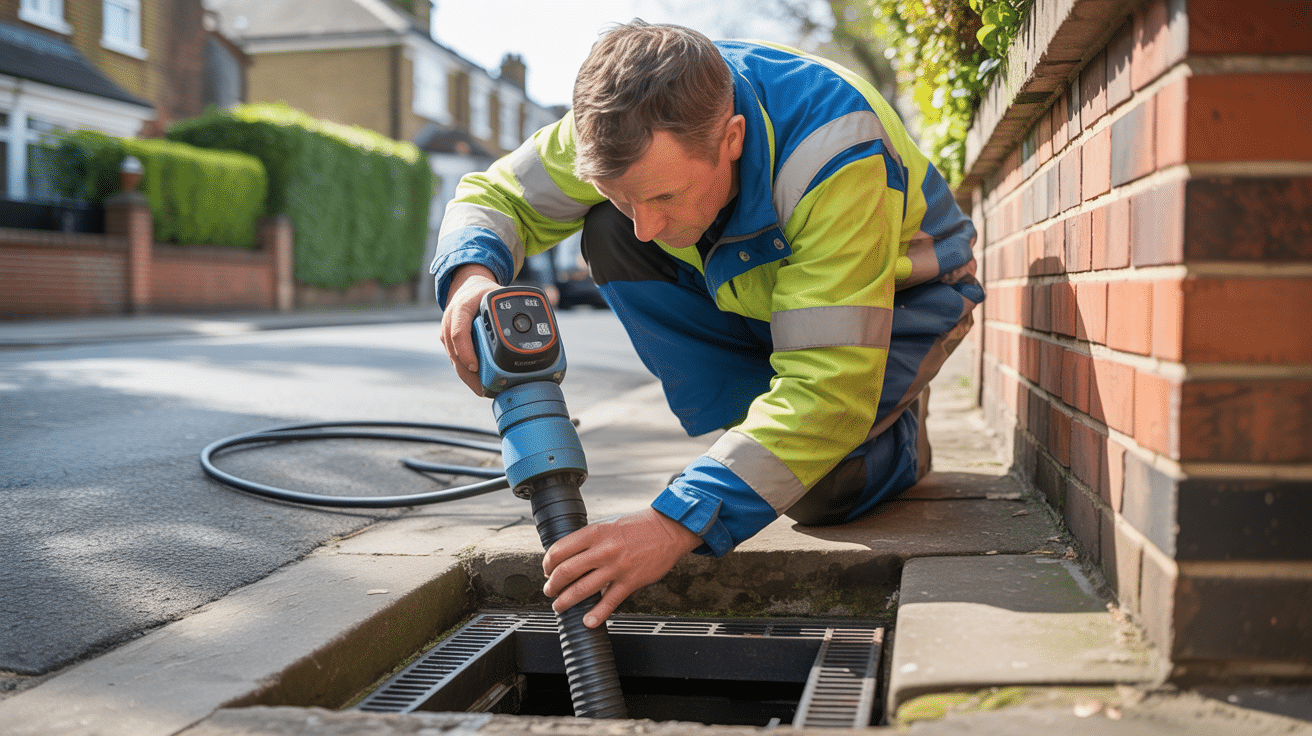
Disagreements can turn a straightforward repair into a months-long conflict if you don’t anchor the conversation on facts, not feelings. But with the right process, even heated arguments can end with mutual protection—and future peace of mind.
How to End a Blocked Drain Dispute (and Keep Relationships Intact)
- Always demand evidence: Every charge—by landlord or tenant—should be backed by date-stamped photos, a plumber’s report, and log of messages or attempted troubleshooting steps.
- Don’t threaten or withhold rent too soon: This makes the dispute personal and can backfire, especially if you later misread your own contract or the plumber’s findings.
- Use certified engineers only: Deposit schemes and adjudicators take TrustMark, WRAS, and WaterSafe badges as proof of legitimacy.
- Record every call and decision: Phone logs, digital messages, and photographic progress keep both sides honest and protected.
- Know your escalation path: Where talks fail, refer to the TDS (Tenancy Deposit Scheme), ombudsman, or small claims court, but only after compiling all your documentation.
Disputes die in the daylight—bring all messages, all plumber notes, and your deposit protection paperwork to the table.
Hector Gauge’s rule? If everyone operates as if the final decision will rest on your paperwork, not your memory or intention, outcomes are almost always fair.
How Can Landlords and Tenants Act Now to Prevent Disputes Over Blocked Drains?
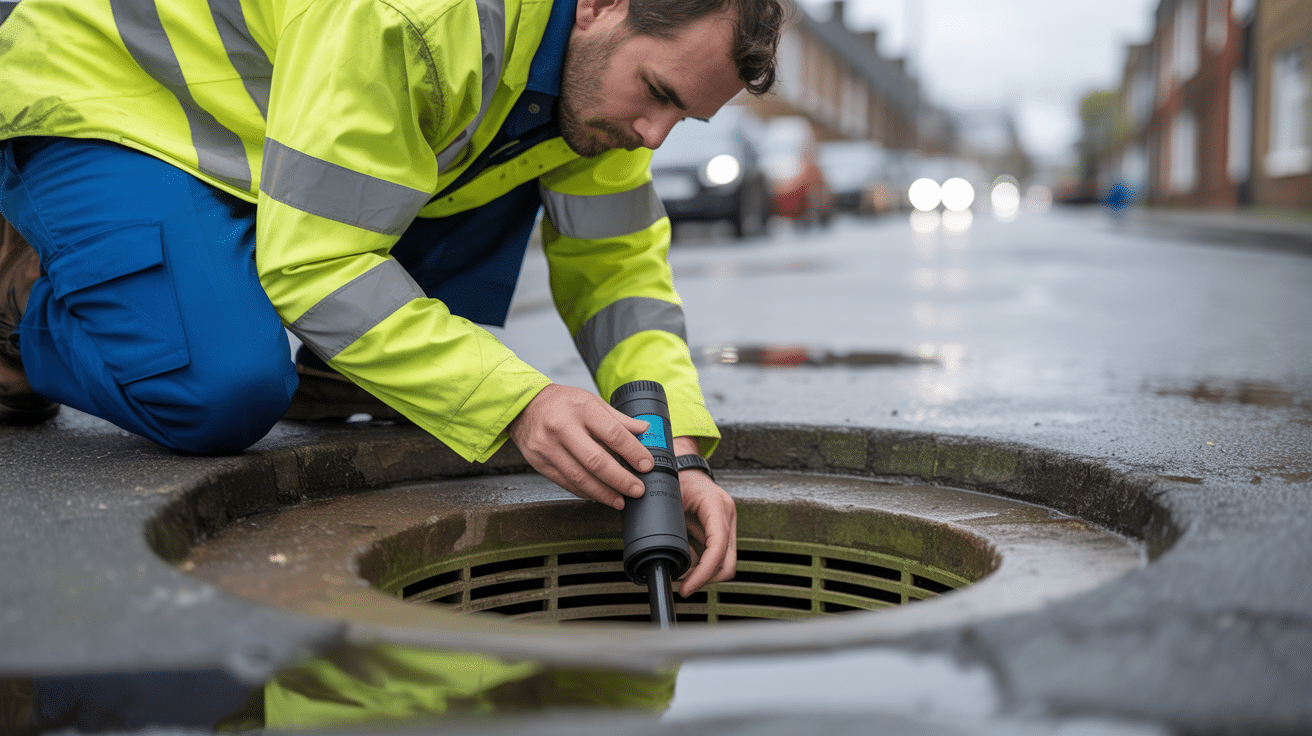
Blocked drains are often preventable. Most disputes are not about knowledge—they’re about habits, communication, and leaving a paper trail when things do go wrong. Here’s how you can get ahead of the usual problems.
Prevention for Tenants: Drain-Safe, Hassle-Free Living
- Only flush toilet paper—never wipes, hygiene products, or kitchen towel.
- Pour waste cooking oil into containers, never the sink.
- Use sink strainers for leftover food and catch-all guard for bathroom drains.
- Flag slow drains with timestamped photos and immediate email/message to agent/landlord.
- Follow any advice or handouts provided—ignorance won’t win a dispute.
Prevention for Landlords, Agents, and Commercial Managers: Stay Ahead of Trouble
- Hand out a clear guide on drain and waste use to every new tenant (digital preferred for easy lookup).
- Schedule annual (or biannual) drain checks—photograph all investigations and log any findings and recommendations.
- Only ever send certified, WRAS/WaterSafe plumbers: their paperwork can make or break a future deposit or insurance claim.
- Maintain accessible property/maintenance logs so tenants know where to look if issues arise.
A single shared digital log, updated with every repair, is worth more than any debate or policy—because it proves care and intent.
When in doubt, default to over-communication—not silence or assumptions. When everybody keeps records, nobody gets caught out.
Why Evidence, Proof, and Clear Logs Mean Fewer Bills and More Peace—for Property Owners and Tenants Alike
The real secret to stress-free, low-cost blocked drain fixes isn’t owning new pipes (although that helps)—it’s mastering communication, evidence, and smart process. Homeowners, landlords, agents, and tenants who expect disputes and prepare for them rarely end up in one.
- Always save every plumber’s report, with cause and date noted, for your own protection or your tenant’s
- Both parties should photograph blockages and fixes, never relying on “verbal agreement” alone
- For ambiguous or shared blockages, insist on CCTV survey evidence before agreeing who pays
- Prevention is an investment: a quick guide or routine check saves ten times its cost in avoided disputes
As Hector would say: “A calm phone call and clear evidence cost less than half a lawyer’s warning letter—and benefit everyone involved.”
Book Trusted Plumbers 4U—Get Certainty, Not Stress, When Drains Block
Blocked drains, deposit fears, or legal wrangles? Plumbers 4U helps property owners, landlords, agents, and tenants alike get the job fixed and the paperwork right—from first call to final photo.
- WaterSafe & WRAS-certified engineers: Fast, polite, and transparent—no shortcuts or guesswork, just proper fixes
- CCTV survey evidence with every tricky job: Deposit disputes and blame games both solved in one go
- Clear cost upfront, fixed price: Know what you’re paying and who’s accountable before any work starts
- Complete repair logs, photos, and a ready-to-send report: Letting you or your client hand over a file, not an argument
- National coverage—emergency and planned repairs: From tower blocks to terraced homes, we’ve seen it all and solved it all
Don’t settle for quick fixes or “that’s not my job” arguments. Get expert diagnostics, bulletproof evidence, and a stress-free handover—book Plumbers 4U for drain problems that need clarity, compliance, and peace of mind across the UK.
Proof, not panic, gets drains cleared and relationships intact. Your next call matters—choose the team with the process and the paperwork.
Book Plumbers 4U for Drain Issues
Frequently Asked Questions
What determines whether a landlord or tenant pays for blocked drains in a rental property?
Responsibility for blocked drains in a UK rental hinges on proving who or what caused the obstruction—landlords cover systemic faults, but tenants can be liable for clear misuse.
Landlords are obligated by the Landlord and Tenant Act 1985 to ensure the property’s drainage is sound, handling repairs from ageing pipes, root damage, or structural defects. Yet, if a plumber’s report traces a blockage to tenant actions like flushing wipes, oils, or non-sanctioned objects, and the findings are well-documented, tenants often shoulder the bill. Disputes typically centre on proof: CCTV images, dated reports, or contaminated parts shifted the financial responsibility. For shared or external drains, the local water company may step in if the fault lies beyond the boundary.
The paper trail counts more than the last word—document every issue from day one.
When does each side’s liability shift?
- Landlords: Systemic problems—old pipes, sags, roots, improper gradients, or part failure, backed by a plumber’s diagnosis.
- Tenants: Proven introduction of wipes, grease, nappies, or foreign items, confirmed with evidence (report, CCTV, or removed material).
- Water Authorities: Shared main and boundary drains, especially in flats or leaseholds, under the Water Industry Act 1991.
What new contractual changes are shaping liability?
- More tenancy agreements and check-in packs define “acceptable waste” and explicitly mention WRAS rules.
- letting agents increasingly require tenants to acknowledge drain use policies upon moving in.
How should you act to protect interests?
- Landlords: Keep inspection records and provide written waste disposal guidelines.
- Tenants: Report problems early and request documentation before accepting any charge.
- Both: Demand a full, illustrated report before cost-sharing or assigning blame.
How does the standard of evidence impact drain unblocking charges during a dispute?
The strength of evidence—such as a detailed plumber’s report or CCTV footage—often dictates who pays for unblocking drains, not simply a landlord or tenant’s belief.
Deposit schemes and courts stake decisions on itemised, date-stamped reports with photographic proof. Vague claims, unverified assertions, or phone call logs alone don’t resolve who’s responsible. For agents, presenting a clear timeline with images, written diagnosis, and a material trail makes all the difference. Tenants win disputes more readily by supplying their own photos and correspondence, establishing patterns of timely reporting or denied repairs.
Photos and expert statements outshine memory—keep your receipts and your storey straight.
What makes an expert plumber’s report decisive?
- States precise location and time of blockage
- Clarifies method: CCTV, dye, or physical extraction
- Lists causes like wipes, soap build-up, fats, or age
- Highlights recurring wear or past unresolved defects
Table: Strength of Proof in UK Drain Disputes
| Evidence Presented | Outcome Likelihood | Example Scenario |
|---|---|---|
| CCTV, photos + report | Nearly always decisive | Deposits settled, insurance accepted |
| Written report only | Often accepted | Small claims, council resolution |
| Verbal claims | Weak, usually refused | Adjudicator or ombudsman rejections |
Insider tip for both parties:
- Attend a plumber’s inspection or request before/after images. Full transparency cuts down future disputes.
If you expect future issues…
- Proactively request a “pre-tenancy drain test” after renovation, especially in older housing stock.
Why are tenants sometimes charged for drain blockages they didn’t intentionally cause?
Tenants can face charges for blockages if even accidental misuse is identified through professional reports—intent is less important than the chain of evidence.
Common sources include “flushable” wipes, overlooked cooking fats, or dropped objects like toys, all of which leave forensic clues or residue inside pipes. With modern tenancies, contracts usually specify acceptable drain use—WRAS guidelines, for instance, list only toilet tissue and wastewater. Introduce anything else, and you risk delayed charges when blockages surface months later. Agents increasingly provide waste lists and drain-use disclaimers in “welcome packs,” reducing ambiguity at check-in.
A drain’s memory lasts longer than yours—only allowed materials keep you off the hook.
How can a tenant avoid surprise charges?
- Pour or flush only water, standard toilet tissue, and approved cleaning agents.
- Report persistent slow drainage—request written acknowledgement and include timing.
- Request and save evidence for every unblocking, particularly in shared or older properties.
Frequently contested scenarios
- Blockages from a lost toy or accidental kitchen waste: split liability unless a pattern is shown.
- Long-term build-up not directly proven to a tenant: often resolved in the tenant’s favour unless recent misuse is proven.
- Overuse of harsh chemicals: can shift liability if pipework is damaged.
Future-facing practice
- Expect contracts to itemise “permitted waste” and reference Part G or WRAS as standard.
When can a landlord levy drain-unblocking charges despite disputed cause?
A landlord can only lawfully pass unblocking costs to the tenant if specific evidence demonstrates tenant-caused misuse; suspicion alone doesn’t suffice.
The best practice requires a professional diagnosis, ideally including CCTV images and an itemised list of retrieved material, to establish cause. If findings are ambiguous or point to a blend of system fault and use, most dispute services err on the side of the tenant or propose a cost split. Nonetheless, some letting agents or insurers may initially pay for the emergency and seek reimbursement only once the full report is in hand.
When in doubt, let the facts—not frustration—lead the charge assignment.
Proper protocol for landlords
- Commission a certified plumber: request all images and itemised notes.
- Share findings with the tenant before deposit deductions or direct billing.
- Escalate as needed: use tenancy deposit dispute resolution, ombudsmen, or, as a last measure, county court.
Emergency override
- Fix health or flood risks first. Cost attribution and evidence gathering comes after—never let a dispute delay urgent work.
Recovery steps
- If the dispute is unresolved, seek early mediation, share all reports, and avoid aggressive cost chasing without ironclad proof.
What recourse or protection exists if a landlord ignores a reported drain blockage?
If a landlord fails to fix a reported blockage, UK law protects tenants who document their efforts, escalate correctly, and act proportionately—especially if safety is at risk.
After initial notification, tenants should log every contact, attach photos, and copy in a letting agent if possible. Should landlords remain unresponsive (typically after 24–48 hours for urgent hazards), a tenant can contact the local council’s environmental health team. As a last resort—and if correct steps are followed—tenants can arrange for emergency unblocking and deduct “reasonable” costs from future rent, provided they keep receipts and a communication record.
The right paper trail lets you solve the problem without risking your home or your deposit.
Escalation pathway
- Notify landlord/agent in writing, with dated photos.
- Allow a fair response window, log each follow-up.
- If no action, escalate to your council’s private rented sector or environmental health.
- For urgent blockages or health risks, commission professional unblocking, keeping full documentation for possible rent deduction.
Risks and legal lines
- Withholding rent is risky—use only if council/emergency deduction protocol is followed.
- DIY fixes can transfer liability if pipework is damaged or cause remains unclear.
Table: Steps to Secure Your Rights
| Step | Use When | Key Document to Keep |
|---|---|---|
| Written report | Issue first noticed | Email with images and timeline |
| Council escalation | No action, urgent risk | All follow-ups, plumber report |
| Emergency fix | Health risk present | Invoice, before/after photos |
| Dispute process | Unfair deduction claim | Complete record of steps |
How are blocked drain emergencies handled in communal or managed buildings?
Drain emergencies in shared or multi-tenant properties demand rapid action—immediate fixes protect safety, prevent structural damage, and maintain tenant relationships.
Landlords are expected to intervene within 24–48 hours of notification, prioritising resident safety over blame or cost allocation. In blocks of flats or communal systems, first responders should alert both management and local water authorities, as responsibility can shift beyond the landlord for external or shared drain failures. Detailed logs, photos of damage, and incident timelines will all be expected if disputes arise. The initiating party (often the landlord) may later recover costs from tenants or the water company, depending on verified cause.
Safety comes before ledger entries—restore order, then document the fix.
Checklist for communal emergencies
- Photograph overflow, water escape, or visible blockages.
- Shut off supplies and mark affected areas, if safe to do so.
- Notify landlord, agent, or building manager for guidance and emergency callout.
- For shared or public drains, record all advice, job numbers, and service visits.
Collaboration between tenants and landlords
- Prompt, honest communication makes for faster fixes and fewer cost disputes later.
- Plumbers 4U’s evidence-driven approach supports both managers and residents—offering impartial diagnosis to clarify legality and cost.
Preparation strategies
- Know your building’s emergency drain policy and keep key contacts accessible.
- For repeat issues, request periodic drain inspections and written logs from management.
Book an evidence-backed drain survey or emergency response with Plumbers 4U—our WRAS-certified engineers, clear documentation, and fast callout help you resolve blockages and secure your rights, whether you’re a landlord, agent, or tenant.

